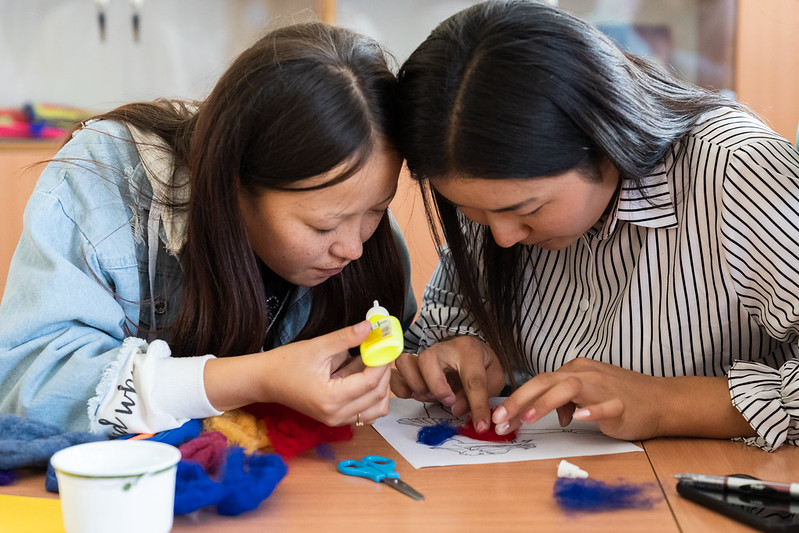“Human Centred Design is trying to democratise the design process…it is putting the tools in the hands of the people most central to the problem.“
Katie Krummeck
In 2019, working alongside a variety of government and foundation partners, the Aga Khan Foundation launched a large-scale, multi-country educational research initiative – Schools2030. The vision is simple – to improve education equity and quality for all.
Though the vision is simple, the implementation of it is a significant and large-scale challenge. To be conducted over 10 years, across 1,000 schools in 10 countries, Schools2030 aims to search for ‘what works’ to improve learning outcomes with a focus on holistic learning. Crucially this is school-driven, in other words from the bottom-up, rather than the top-down. Schools2030 will reach an anticipated 50,000 school children and seeks to amplify the innovative education solutions of 5,000 teachers and school leaders.
As part of this ongoing, iterative research, during the worldwide lockdown in April 2020, programme designers from across the world took part in a 12-week Human Centred Design course to tackle the challenge: How might we reimagine learning at home during COVID-19?

The course aims to help education designers develop new – or adapt existing – teaching methods, putting students and educators at the heart of the design process. Participants will then share the toolkit and skills they have developed with teachers and educators in their respective countries, equipping them to deliver quality learning that supports their students holistically.
The course aims to help education designers develop new – or adapt existing – teaching methods, putting students and educators at the heart of the design process. Participants will then share the toolkit and skills they have developed with teachers and educators in their respective countries, equipping them to deliver quality learning that supports their students holistically.
In this interview, course facilitators Katie Krummeck and Gray Garmon, speak about what Human-Centred Design actually is, why they see it as so important to improving education outcomes, and how they are working with the team at Schools2030 to help embed these principles into the heart of the programme.
“If COVID has shown the world what educators are doing and what students need, then my hope is that we are responding with empathy and building back something better.”
Gray Garmon
This video was first published by AKF UK in July 2020.
0:00-15:14 Introductions and backgrounds of Katie and Gray
15:14–23:30 Design workshops for Schools2030, before and after COVID-19
23:30–33:06 Discussion around the pivotal ‘define’ and ‘generate’ phases of the design process
33:06–end Design thinking, empathy and the future of education